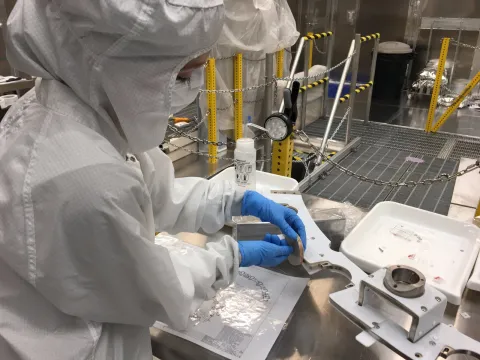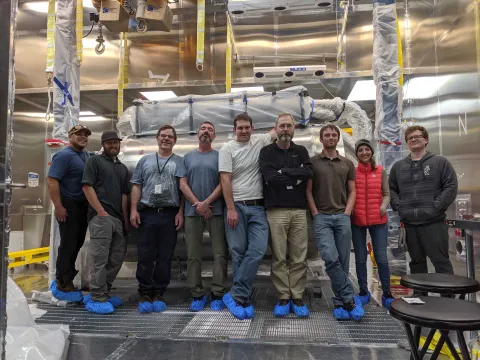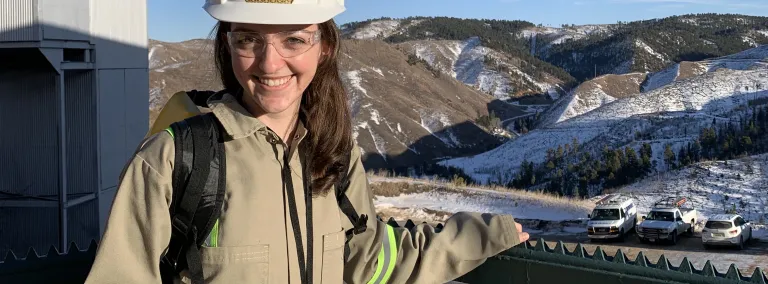LZ researcher receives recognition from UK’s premiere physics institute
Theresa Fruth awarded with the Institute of Physics' Early Career Prize
On the 4850 Level of Sanford Underground Research Facility (Sanford Lab), researchers from across the globe are piecing together one of the world’s most sensitive dark matter detectors. The LUX-ZEPLIN (LZ) dark matter experiment draws on the expertise of 250 scientists from 37 institutions, all collaborating to propel our understanding of the universe further than ever before. One of LZ’s researchers was recently recognized for her efforts by the United Kingdom’s Institute of Physics (IoP).
This month, the IoP Astroparticle Physics Group (APP) awarded Theresa Fruth the Early Career Prize. This prize recognizes Fruth, a postdoctoral researcher with University College London (UCL), as a leading early-career scientist.
“This year, among many strong candidates, the IoP APP committee recognized Dr. Fruth's leadership and valuable contributions to the LZ experiment,” said Teppei Katori, the chair of the committee who awarded the prize and experimental particle physicist at King’s College London. “We believe in Dr. Fruth and the LZ experiment's future success.”
Fruth first became involved with LZ during her doctorate program at the University of Oxford. Her work included the development of monitoring sensors, simulation and data analysis.

Just three days after completing her thesis, Fruth was asked to become the Time Projection Chamber (TPC) coordinator, a prominent role within the LZ collaboration. As the TPC coordinator, Fruth manages the experiment’s multifaceted inner detector.
Chamkaur Ghag, professor of physics at UCL and Fruth’s supervisor, nominated Fruth for the IoP award, noting her exceptional early career success.
“It's fairly unheard of to have someone go straight from their PhD program into a role that carries this much responsibility,” Ghag said. “But that's a testament to the way she operates. As a PhD student, she was already operating as a level-headed, technically adept postdoc. We know she will be excellent in this role.”
The prize comes with a monetary award and a certificate, along with a plenary award talk at the 2021 IoP APP annual meeting and award ceremony.
“To me, this award is validation that my work is contributing to the project, to physics,” Fruth said. “Working in this collaboration, there are a lot of awesome people that I look up to. When a role model values what I say, the opinions I bring and the work I do, those are my proudest moments.”
Fruth said that her work with the collaboration, specifically her shifts onsite at Sanford Lab, have been pivotal in her decision to continue her career in experimental physics.
“Astronomy is what drew me into physics. I was interested in people like Galileo, those early thinkers who changed so much about how we perceive the world,” Fruth said. “But a turning point for me was coming onsite as assembly began. It just made such a difference to see the pieces coming together, to see everyone working together to build LZ.”

Fruth, who was scheduled to return to Sanford Lab this April to help complete LZ’s installation, instead finds herself in London as COVID-19 stalls work at laboratories around the world.
“I hope to get back very soon to continue working and complete the detector,” Fruth said. “It’ll be good to get back underground.”
The LZ dark matter experiment will begin its search for dark matter later this year, in the Davis Cavern on the 4850 Level of Sanford Lab.
